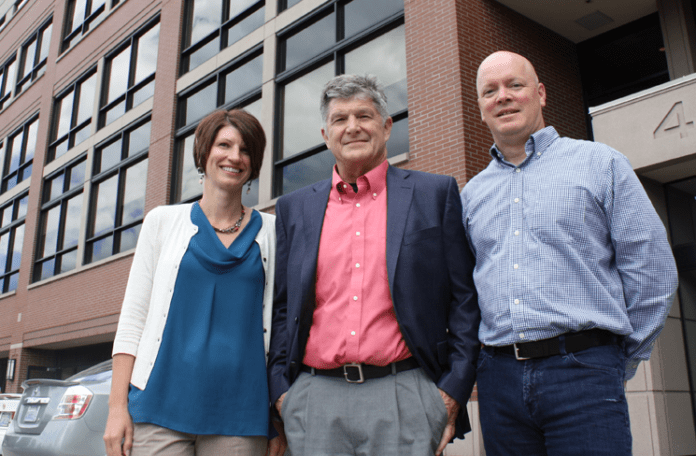In the early 1980s, the passage of two laws helped to define the role of environmental engineering firms across the country. The laws – the Resource Conservation and Recovery Act and the Comprehensive Environmental response, Compensation and Liability Act (CERCLA) – govern how hazardous waste is handled and disposed of. They also created the designation of Superfund sites, establishing rules that govern how those sites are cleaned up.
Vancouver-headquartered Maul Foster Alongi was born out of that market demand. Founded 20 years ago, the firm answered the call for those seeking environmental engineering services in accordance with federal regulations.
In its early years, the core of the firm’s work focused on cleaning up gas stations, hazardous waste, discharge disposal, landfills, industrial sites and other contaminated properties.
“There was a huge wave of cleanups in that area at the time,” said Jim Maul, the firm’s president and one of its original founders. “It was a very complex environment from a regulatory standpoint.”
Today, Maul Foster Alongi’s business model relies on integrated, comprehensive services ranging from planning and landscape architecture to industrial hygiene.
Maul is the firm’s principal hydrogeologist, responsible for analyzing and identifying contaminants in the ground and groundwater of a contaminated site. Neil Alongi, the firm’s principal engineer and another founder, was primarily responsible for evaluating the risk of the contamination. The firm also has a civil engineering component, which allows the firm to develop clean-up solutions.
“We wanted to be a company that was not only really good at going in and developing an understanding of what the problem was, in terms of the nature and the extent of the contamination… but a company that had the engineering skills to design and build remedies,” Maul said.
These integrated services have not only distinguished Maul Foster Alongi from many of its competitors, but according to Steven Taylor, the firm’s managing director of engineering, they have helped the company navigate industry changes.
“Before it was just cleanup for the sake of cleanup,” said Taylor. “Now it’s cleanup with a vision.”
Decades ago, contaminated sites were considered unusable, even after clean up. Now, because of rising property values and the scarcity of industrial land within urban growth boundaries, private landowners and regulatory bodies want to know whether sites can have additional uses.
“The regulators in Washington and Oregon have come to believe that redevelopment is a good thing if it cleans up the property, too,” Taylor noted.
Since its founding, Maul Foster Alongi has grown from four employees to more than 80, with three offices in Washington (Vancouver, Seattle and Bellingham), one in Portland and two in Idaho (Kellogg and Coeur d’Alene). In 2013, the company became 100 percent employee-owned.
A few of the firm’s current projects include master planning and revitalization for the Port of Ridgefield’s waterfront, Clark County’s closed Leichner Landfill and the City of Vancouver’s Lower Grand Employment Area Action Plan.
Maul said that redevelopment, when possible, is an “economically sound” model for environmental cleanup and engineering – one that “benefits the whole community.”
“We’ve gotten smarter in terms of how we leverage and accomplish a cleanup,” Maul said, reflecting on how the industry has evolved over the last 20 years. “There’s no relaxation of the environmental regulations, it’s just a different way of looking at how we get to it.”
Maul Foster Alongi’s Vancouver headquarters is located at 400 E Mill Plain Blvd., Suite 400.




